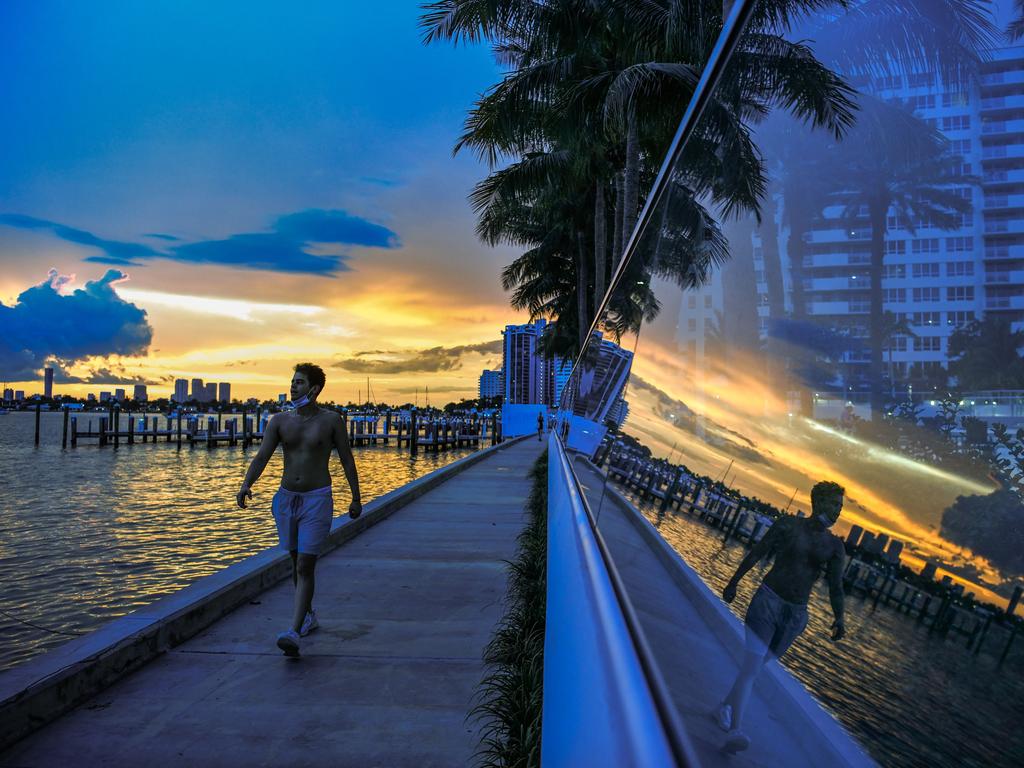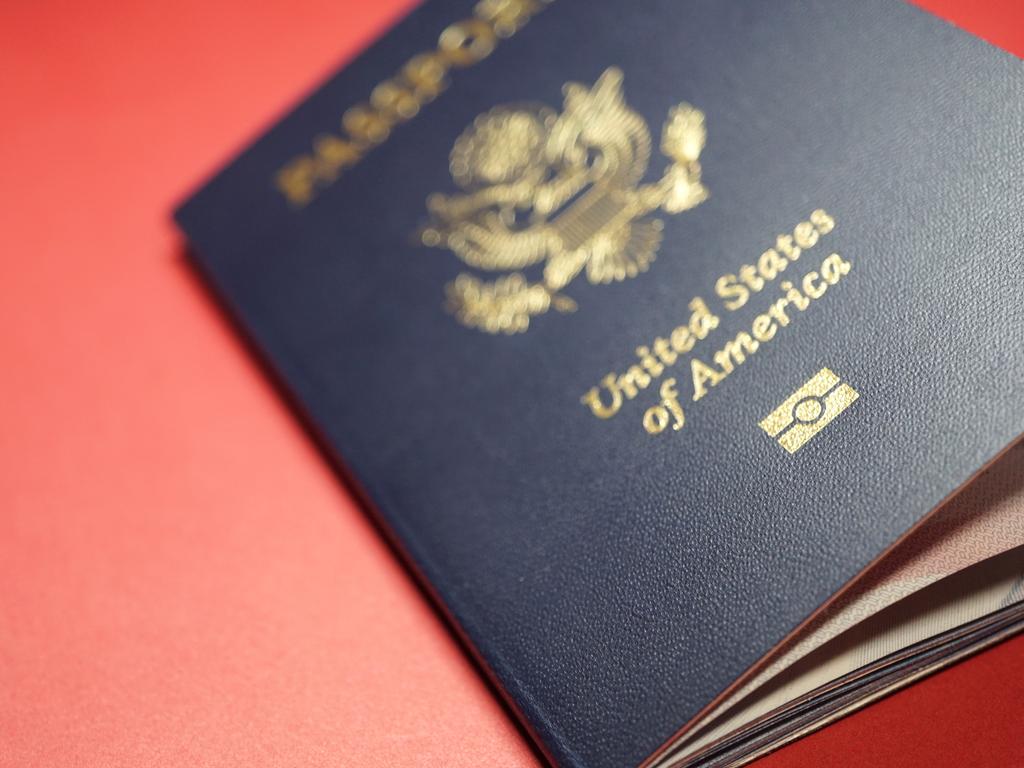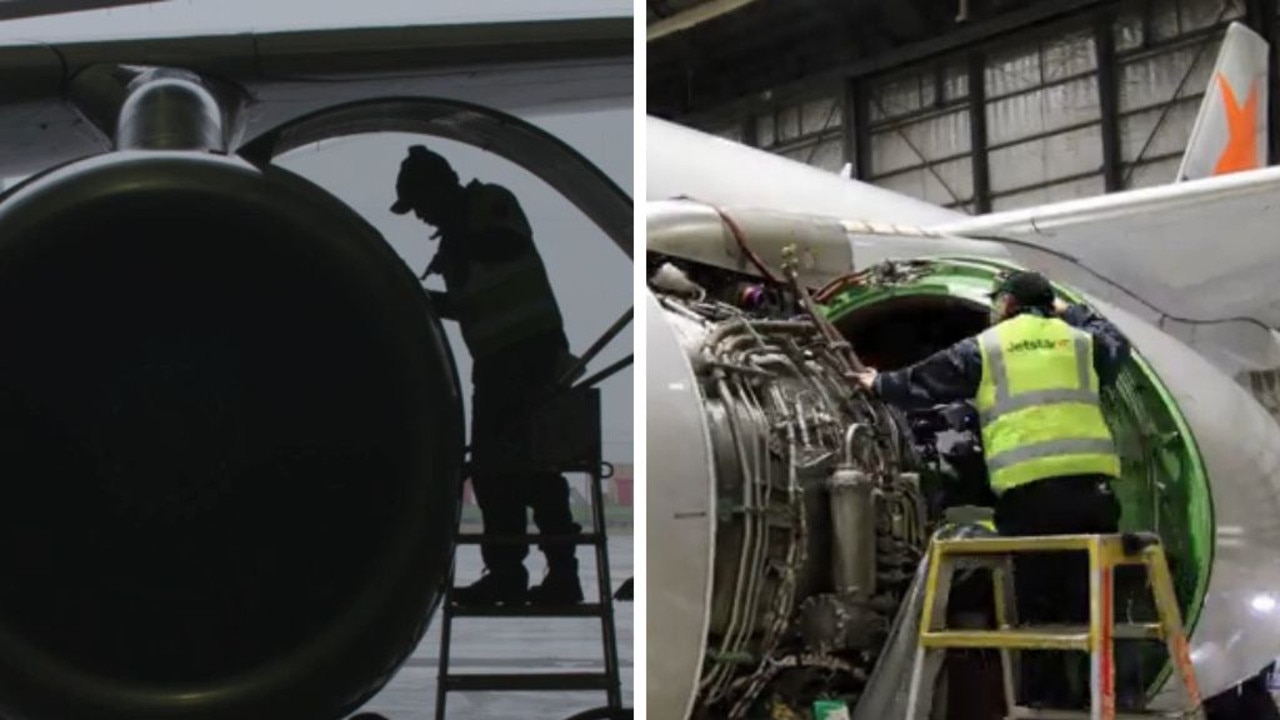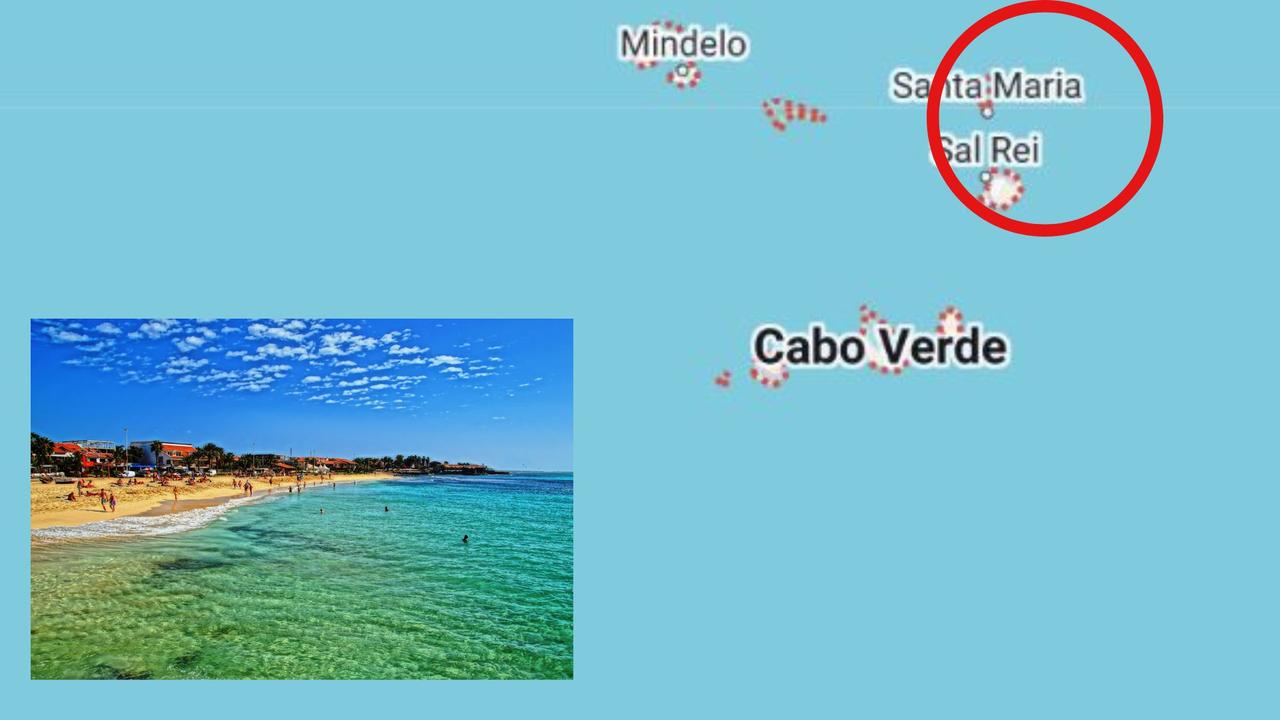Europe, Canada ban US from entering amid coronavirus cases spike
Unlike Australians, Americans aren’t banned from travelling overseas right now. The problem is hardly any country in the world will have them.
Many countries are reopening their borders to international travellers as they seek to restart their economies, revive flailing tourism industries and inch towards some kind of post-COVID normal.
But there is one nation of travellers they don’t want to come anywhere close.
As its infection rates and death toll continue to soar, the United States has been black-listed from a growing list of nations who deem its citizens to be huge COVID-19 risks — effectively making American travellers the pariahs of the world.
RELATED: Follow the latest coronavirus updates
RELATED: US becomes first country to hit four million cases
It’s a bold move considering during ordinary times US travellers are the second-biggest travel spenders in the world behind the Chinese — Americans spent $203 billion on travel in 2018, according to National Geographic. But as the US continues to break records for daily infections and deaths, it’s an opportunity most countries won’t risk.
The scarcity of international flights and local lockdowns mean few people are travelling for business or leisure. And Australians are still restricted from leaving the country except in very special circumstances.
But we are, in theory at least, welcome back to much of the world. The European Union recently included Australia on its list of “safe countries” whose citizens can enter the 27 EU member nations and four other countries in the visa-free Schengen zone.
On the other hand, Americans are advised not to travel overseas but aren’t outright banned. The problem is, there’s hardly anywhere for them to go.
The US was a notable omission from the EU’s safe country list, and there are no signs it will be included anytime soon.
RELATED: NZ prioritising other countries for bubble, not Australia
RELATED: Big clue on when air travel will resume
Meanwhile its northern neighbour, Canada, won’t allow Americans to cross the border. Americans are allowed in some Mexican states but the land border remains closed.
China and Japan have banned all travellers from the US, as have Australia and New Zealand, who have both closed borders to all foreign visitors.
And now the Bahamas, a popular destination for American holiday-makers — especially during this northern summer — has also banned entry to US travellers following a surge in cases after it reopened its borders on July 1.

The list of countries Americans can travel to is quite short, and most come with strict conditions, such as 14-day quarantine on entry, or proof of a negative COVID-19 test.
According to CNN, those countries include nine Caribbean nations — including Jamaica, which relies heavily on US tourism dollars — as well as the UK, the United Arab Emirates, Maldives, Turkey, Cambodia, and a smattering of countries in eastern Europe and Africa.
The Washington Post called travel bans on US travellers “extraordinary”. The Atlantic declared this to be “America’s summer of isolation”.
Writing for The Guardian, American novelist Francine Prose said America had become a “pariah nation”.
“America has done such a poor job of controlling the COVID-19 outbreak that our infection rate is increasing dramatically while that of most European nations is either remaining stable or decreasing,” she wrote in June.
“We’re simply too dangerous – too likely to bring the deadly virus along with the more welcome (and needed) tourist dollars.”

She said while the virus risk and the hit to the economy meant fewer Americans would be travelling for the northern summer, it was still a “strange feeling”.
“In just a few months, we’ve become a pariah nation,” she said “We’ve gone from being admired for our spirit, our culture, our stalwart devotion to freedom despite our government’s persistent attempts to curtail those freedoms – and are now being viewed as a nation of superspreaders, a danger to our own health and that of the hotel reception clerk, the waiter at the cafe, the two innocent grandmas with the bad luck to sit at a table too near the Americans sipping their morning cappuccini.”
The bans on US travellers has also seen the American passport lose a lot of its power, given it can no longer grant visa-free access to as many countries as it usually can.

A recent analysis of the world’s passports citizenship firm Henley and Partners found the US passport has slumped in power thanks to the EU ban in particular, and now wielded about as much power as those of less developed nations such as Uruguay and Mexico.
Henley and Partners said America’s omission from the list was a move perceived as a “stinging rebuke for its poor handling of the pandemic” and had prompted an “extraordinary shift” in passport power.
“In 2014, (the US passport) held the number one spot in the world on our index, but US nationals currently have far less travel freedom than most citizens of other wealthy, industrialised nations and even of some less developed nations, being effectively locked out of Europe,” Henley and Partners chairman Christian H. Kaelin said.
“We see an emergence of a new global hierarchy in terms of mobility, with countries that have effectively managed the pandemic taking the lead, and countries that have handled it poorly falling behind.”



